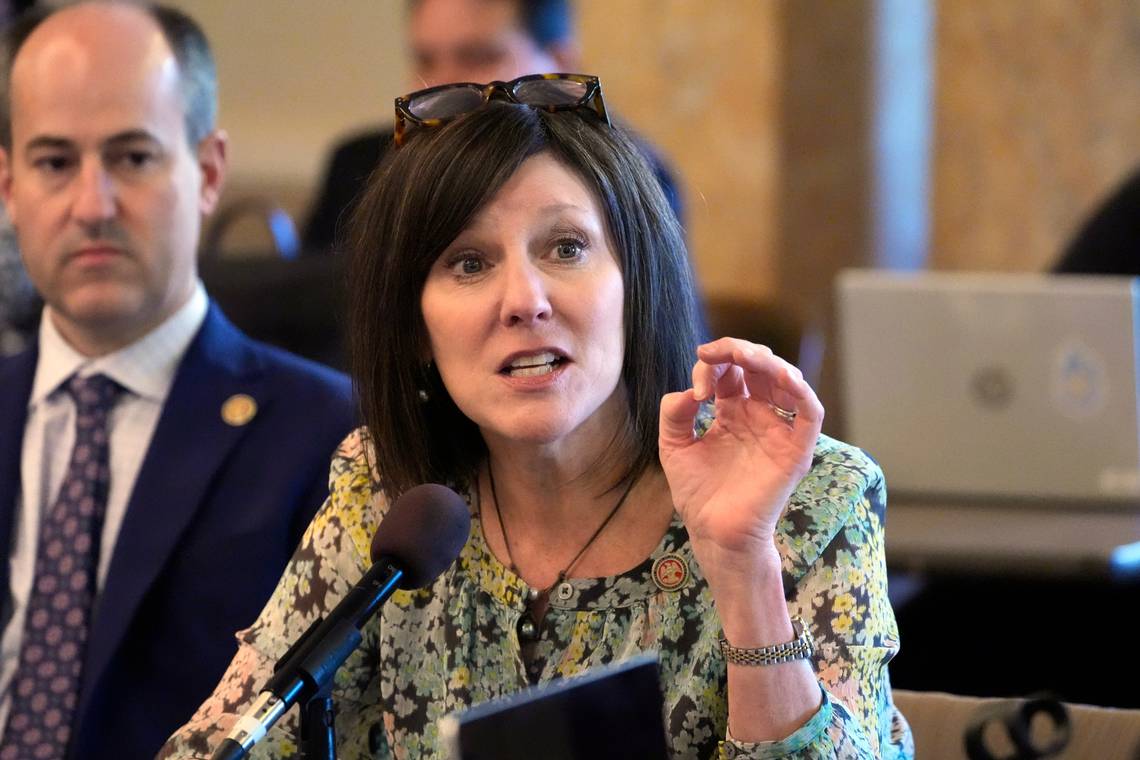The curtain was pulled back last week for the first time in years on the Mississippi Legislature’s often mysterious conferencing process.
A conference committee consists of three representatives and three senators appointed to try to reach agreement when the two chambers pass differing versions of the same bill. Last week, a conference committee formed to try to reach agreement on Medicaid expansion caused a stir by meeting in a public setting.
Even though the joint rules of the Mississippi Legislature call for an open conferencing process, the conferees seldom meet in public. They usually meet and negotiate their differences near the end of the session behind closed doors.
That was not always the case.
For a period in the late 1990s and early 2000s, the Legislature, under intense pressure from the Mississippi Press Association, made open conference committees the norm.
Some major issues have been played out in public conference committees. Notable open conferences include:
-
The infamous, excruciatingly long special session in 2002 where businesses received more protection from lawsuits.
-
Budget fights when Haley Barbour was governor when legislators often would reach an impasse in the negotiations process and spend the bulk of their time talking about their cars and eating candy.
-
The major rewrite of the state’s economic development package under then-Gov. Ronnie Musgrove called Advantage Mississippi.
-
The Mississippi Adequate Education Program, which for decades has provided the state’s share for the basic operation of local school districts. It was hammered out in an open conference process in 1997 even before the joint rules mandated the open process.
Then-state Sen. Musgrove and former House Speaker Billy McCoy deserve credit or blame, according to one’s perspective, for proving the open conference process could work. When they chaired their respective chamber’s education committees, they insisted on having an open conference process.
But in more recent years, open conference committees have been few and far between. The joint rule has been largely ignored.
The fact that the three House and three Senate conferees agreed to meet at least once in public on Medicaid expansion — one of the most pivotal issues facing the Legislature in recent years — drew considerable attention.
If nothing else, the open conference committee provided a raw and unedited view of how far apart the two chambers were at the time on an issue that would provide additional health care coverage to primarily the working poor.
The House wanted to provide coverage to those earning up to 138% of the federal poverty level, or about $20,000 annually for an individual, while the Senate had proposed providing coverage to those earning less than 100% of the federal poverty level, or about $15,000 per year.
According to various experts, the House plan would provide coverage to many more working Mississippians and cost less to the state to do than would the Senate plan. The reason for the lower cost to the state is that when expanding to 138%, the federal government will pay 90% of the costs and provide the state an additional roughly $700 million over two years as an enticement to expand.
Under the House plan, the federal government will pay 77% of the cost and offer no incentives. It is important to understand that in the expensive world of health care, the difference in 77% of the cost and 90% means tens of millions to Mississippi state coffers.
The House conferees repeatedly pointed out those numbers — their plan covering more at less cost — during last week’s open conference committee.
One of the reasons legislators through the years have not been enamored with an open conference process is that it has often turned into efforts by the negotiators to sell their position to the public.
Once the open conference process starts, the side that feels the most comfortable with its position wants to meet more often in full view of the public to make sure the public understands where each side stands.
For whatever it is worth, the House conferees were more enthusiastic about continuing the open process after the initial Medicaid expansion conference committee.
And after that initial open conference, the Senate offered a compromise to cover those earning up to 138% of the federal poverty level — just as the House proposed.
This analysis was produced by Mississippi Today, a nonprofit news organization that covers state government, public policy, politics and culture. Bobby Harrison is Mississippi Today’s senior Capitol reporter.
